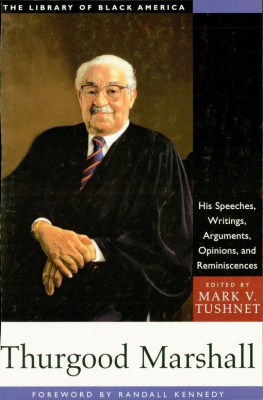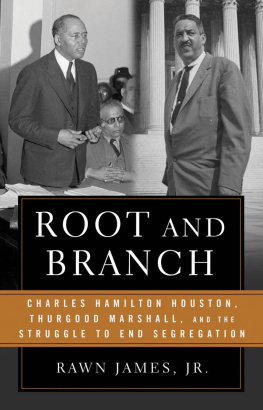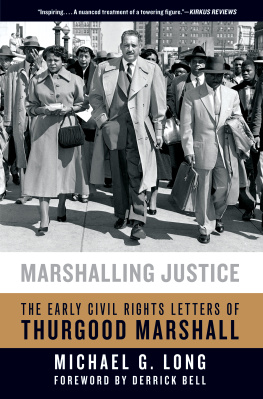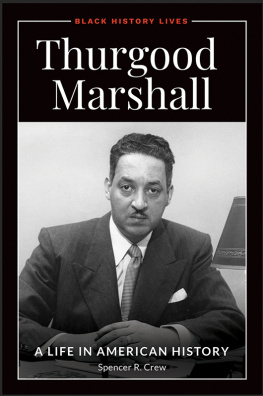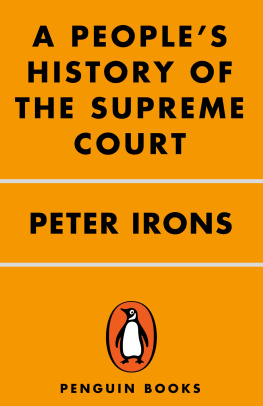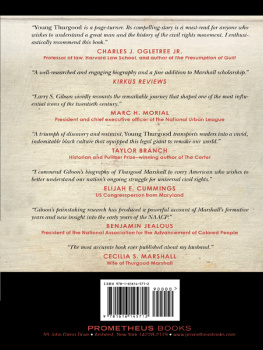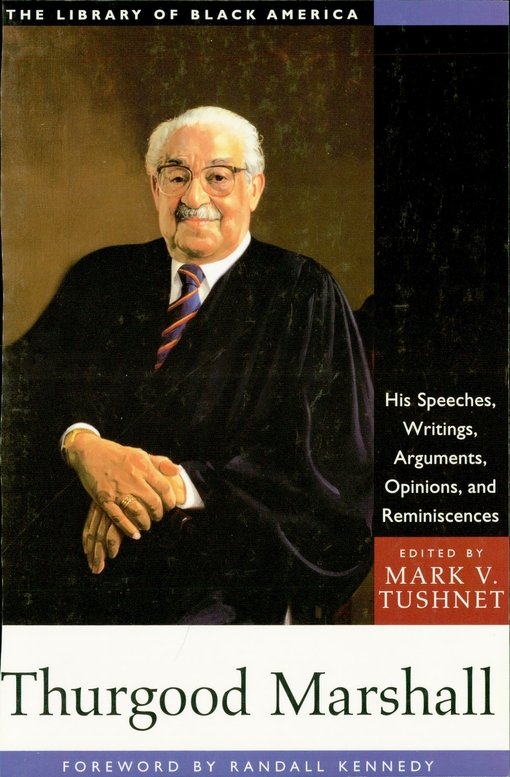Appendix: Annotated List of Important Decisions
According to statistics compiled by the Harvard Law Review, Justice Marshall wrote 322 majority opinions, 83 concurrences, and 363 dissents in his years on the Court. The list below identifies the most important of these opinions, aside from the ones presented in Part Four. Unless otherwise indicated, the opinion is for a majority of the Court.
Adams v. Williams, 407 U.S. 143 (1972) (dissent): The Court upheld a police stop of a person based on information that the defendant was in a nearby car with a gun and narcotics, and a protective search to seize the gun. That, in turn, gave the officer probable cause to arrest the person and search him. Marshalls dissent argued that the decision invokes the specter of a society in which innocent citizens may be stopped, searched, and arrested at the whim of police officers who have only the slightest suspicion of improper conduct.
Amalgamated Food Employees Union v. Logan Valley Plaza, 391 U.S. 308 (1968): Writing for the Court, Marshall found that a shopping mall could not use state laws against trespass to bar peaceful union picketing. Barring such demonstrations from a citys streets would violate the First Amendment, and in modern times shopping malls were the equivalent of city streets. The government could not delegate the power... wholly to exclude those members of the public wishing to exercise their First Amendment rights on the premises in a manner and for a purpose generally consonant with the use to which the property is actually put.
Arkansas Writers Project, Inc. v. Ragland, 481 U.S. 221 (1987): The Court invalidated a state sales tax that applied to many magazines but exempted religious, professional, trade, and sports magazines. Marshalls opinion found this an impermissible distinction among publications, based on their content.
Austin v. Michigan Chamber of Commerce, 494 U.S. 652 (1990): Marshalls opinion for the Court upheld a state law barring corporations from using corporate treasury funds for expenditures supporting candidates. The opinion emphasized the unique legal and economic characteristics of corporations that gave them political advantage because the money they compiled was not an indication of popular support for the corporations political ideas. The ban was justified to reduce the corrosive and distorting effects of immense aggregations of wealth that are accumulated with the help of the corporate form and that have little or no correlation to the publics support for the corporations political ideas.
Barefoot v. Estelle, 463 U.S. 880 (1983) (dissent): The Court approved the use of expedited procedures to deal with death penalty cases, and held in addition that expert testimony from a psychiatrist on the defendants future dangerousness could be used to support a death sentence. Marshall criticized the majority for approving expedited procedures in cases where life was at stake [i]n view of the irreversible nature of the death penalty and the extraordinary number of death sentences that have been found to suffer from some constitutional infirmity.
Batson v. Kentucky, 476 U.S. 79 (1986) (concurrence): The Court held that attorneys using their power to eliminate potential jurors from service through peremptory challenges for which they offer no reasons may not use that power to strike jurors on the basis of their race. Marshalls concurring opinion agreed with the result; but he also argued that racial discrimination in juror selection could be eliminated only by doing away with the entire process of allowing peremptory challenges, because of difficulties courts would have in determining whether a lawyer had in fact based such a challenge on the jurors race.
Beal v. Roe, 432 U.S. 438 (1977) (dissent): The Court upheld state statutes denying state funding under the Medicaid program for abortions. Criticizing the Courts insensitivity to the human dimension of these decisions, Marshall described the statutes as the most vicious attacks yet devised on the right to obtain an abortion, because they would have the practical effect of preventing nearly all poor women from obtaining safe and legal abortions. He applied his approach to equal protection law and found that the statutes were unconstitutional, because the funds were vital to the recipients (poor and, in many cases, minority women), and because, in light of the Courts basic abortion decisions, there was no strong state interest in protecting the life of the fetus at an early stage.
Benton v. Maryland, 395 U.S. 784 (1969): The Due Process Clause of the Fourteenth Amendment incorporates (that is, makes applicable to the states) the ban on placing people twice in jeopardythe Double Jeopardy Clause of the Fifth Amendment. This opinion overruled the leading precedent on incorporation, Palko v. Connecticut, 302 U.S. 319 (1937), in which the Court, through Justice Benjamin Cardozo, had held that the Due Process Clause barred states from using only those procedures that violated rights implicit in the concept of ordered liberty.
Berkemer v. McCarty, 468 U.S. 420 (1984): The Court held that drivers stopped by police officers who suspected that the drivers were intoxicated did not have to be given the Miranda warnings at the roadside, but warnings were required if the drivers were taken into custody. Marshalls opinion said that allowing an exception to Miranda for traffic offenses would introduce Byzantine complexities into a bodyof law designed to give police officers clear guidance; but simply being detained at the roadside did not create the kinds of coercive pressures with which the Court in Miranda was concerned.
Bethel School Dist. v. Fraser, 478 U.S. 675 (1986) (dissent): The Court upheld a schools action disciplining a student who, while nominating another student for student body office, delivered a speech filled with sexual innuendo. Marshalls dissent argued that the Court should require the school to show that the speech disrupted the educational process.
Board of Education of Oklahoma City v. Dowell, 498 U.S. 237 (1991) (dissent): The Court reversed a court of appeals decision, which itself had reversed a trial courts decision to relieve the school board of its obligations under a long-standing desegregation order. The trial court was directed to reconsider whether the order should be dissolved after determining whether the board had been acting in good faith and whether the vestiges of discrimination had been eliminated. Marshalls dissent, interpreting the majority opinion as an assertion that 13 years of desegregation was enough, objected that the purposes of the original order had not yet been fully achieved because there were still a number of one-race schools in the district, and because the boards past behavior demonstrated nearly unflagging resistance to desegregation.
Bolger v. Youngs Drug Products Corp., 463 U.S. 60 (1983): The Court held unconstitutional a federal statute barring the mailing of unsolicited advertisements for contraceptive products. Justice Marshall wrote that the Court would not broadly allow the government to shut off the flow of mailings to protect those recipients who might potentially be offended. Parents, not the government, should act to ensure that children not read offensive materials mailed to the home.
Brown v. Socialist Workers 74 Campaign Committee, 459 U.S. 87 (1982): Because the Socialist Workers Party had shown that its contributors would probably be threatened or harassed if their contributions became known, Justice Marshalls opinion for the Court found that applying campaign finance laws requiring disclosure of Party contributors names would violate the First Amendment.

